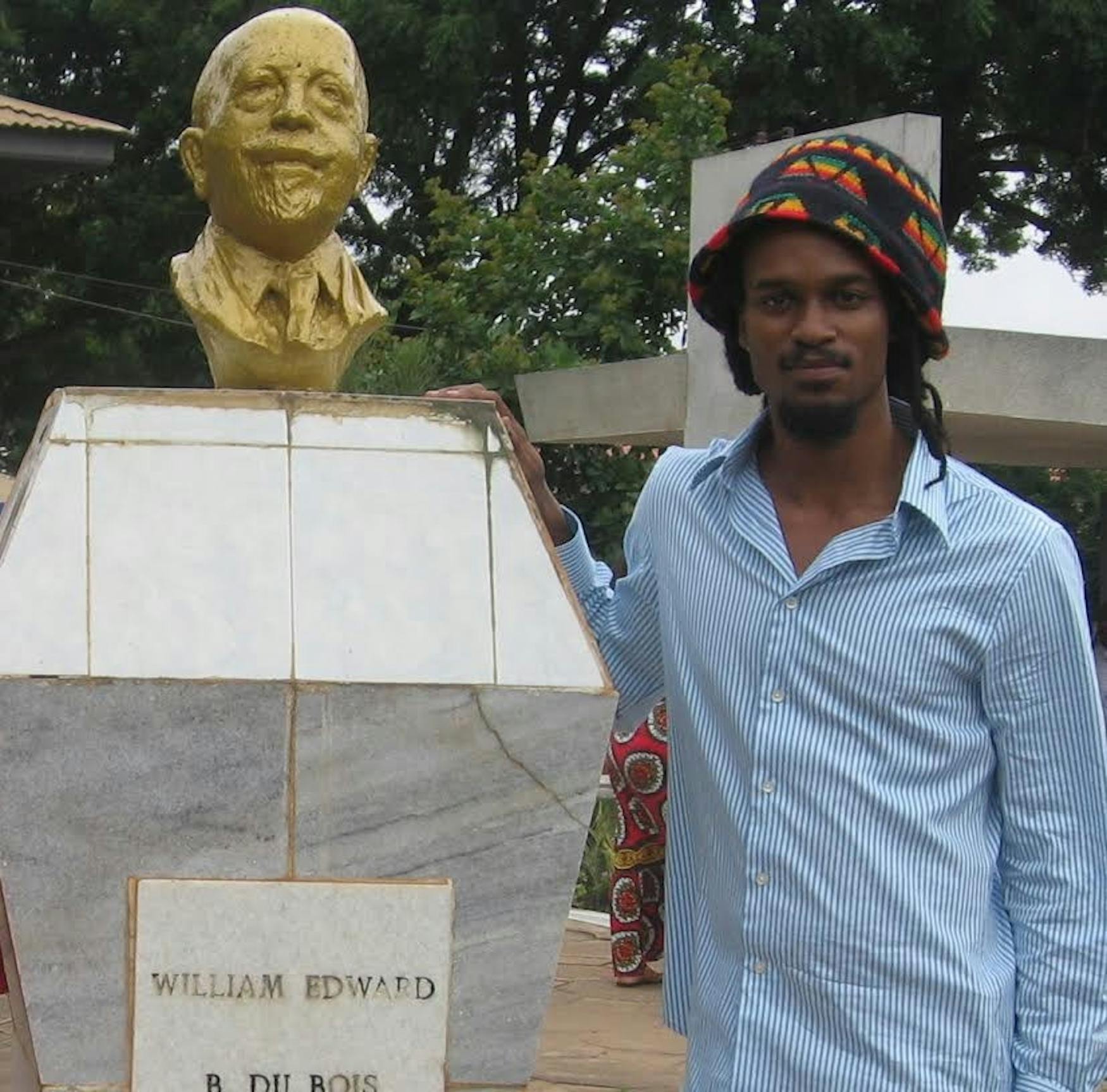History of motion
Marcus Book Store is the oldest black-owned book store in the nation. Owned by Raye and Julian Richardson, the store’s name pays homage to Marcus Garvey, a charismatic proponent of the Pan-Africanism movement. Located in San Francisco’s Fillmore District, a historically black neighborhood, the book store has long been an inspiration for civic engagement groups pursuing racial equality. The bookstore also has been home to one of Brandeis’ newest professors.
Prof. Jasmine Johnson (AAAS/WGS) is the Richardsons’ granddaughter. Along with her colleague Prof. Gregory Childs (HIST), Johnson was hired as a part of a cluster -hire initiative to improve studies of the African diaspora at Brandeis. The goal is to expand Africa diaspora studies to encompass a global analysis aimed at comparing other diasporas to one another.
Chad Williams, the chair of the African and Afro-American Studies department, who oversaw the new hires, believes that the African diaspora is something deeply embedded in all of our personal histories. “To study the African diaspora is to in effect study humanity. African diaspora studies, as a formal and embodied practice, enables us to develop the necessary interdisciplinary tools for understanding our place--past, present and future--in constantly evolving world,” Williams wrote in an email to the Justice.
Jasmine Johnson defines the African diaspora as “the forced dispersal of African peoples across seas, the residual communities that those movements engendered, and the connections and disconnections across that map.”
Johnson teaches courses at Brandeis that consider topics from black authenticity and feminism to African diaspora dance.
Johnson cites her family’s bookstore as the inspiration for her interest in Africa diaspora studies. She recalls that racial politics were always a core part of her life. “My crib was set up right behind the counter,” Johnson recalled. “At a very young age, it was part and parcel of my life to be engaging in conversations about black politics.”
Johnson began to immerse herself in African diaspora studies as an undergraduate student at the University of California, Berkeley. She found that there were simply too many questions and not enough answers to resolve questions of black belonging, the meaning of home and what it means to be dispossessed. She continued to pursue the subject, and in 2012, she obtained her doctorate from Berkeley in Diaspora Theory, Black Feminism, Dance and Performance Studies. Her thesis was titled “Dancing Africa, Making Diaspora.” “I love [the study of Africa Diaspora] because it is the most explosive way to think about the world and the operations of power,” Johnson said.
Greg Childs, another recent hire and fellow researcher of the African Diaspora, shares the sentiment that the African diaspora is about the history of the distribution of power in the world.
“The history of the African Diaspora is one strand of the underside of the history we like to tell ourselves about human progress and the triumph of modernity,” Gregory Childs wrote in an email to the Justice. “As the saying went during the colonial era of Brazilian history: ‘no slaves, no Brazil’. Slavery and what we now think of as globalization went hand in hand.”
Childs first became immersed in the language of the African diaspora through 1990s-era hip-hop, such as the 1993 Nas lyric “Afrocentric Asian, half man half amazing.” It was through Mos Def and Talib Kweli’s group Black Star that he discovered Marcus Garvey’s Black Star Shipping Line, a fleet of boats that the Jamaican leader of social movements envisioned as part of his “Back to Africa” vision. “It reveals itself through an array of connected mediums, from music to dance to political testament, and so it is a history that is by necessity remembered and studied in an interdisciplinary way,” Childs wrote.“To pursue African diaspora studies is to pursue an always already ongoing ‘dialogue’ between different forms of knowledge about black existence.”
Johnson’s research also capitalizes on this inherently multi-media nature of African diaspora research to emphasize not the politics of black social movements, but black movement itself as a product of oppressive institutions of power.
“My research focuses on the way that black folks move due to diaspora travel, gentrification, and how that movement defines blacks,” Johnson said. “I look at how blacks dance, even if they are not the ones dictating the movement.”
Dance comprises an important part of black movement. It is also one of Johnson’s passions. “I’ve always been dancing,” Johnson said. “My professional career in dancing was inspired by my research on ethnography and West African dance. I had been practicing every day to develop a full understanding of it, and eventually dance instructors asked me if I wanted to join a company.”
While teaching at Northwestern University, Johnson performed with the Muntu Dance Theatre of Chicago. Also a member of the Wula Dance and Drum Company and Ballet Merveilles de Guinee, Johnson’s experiences performing have taken her across the globe to Chicago, New York, Mexico and West Africa.
Next semester, she will begin offering a course in the African and Afro-American Studies department called “Dancing the African Diaspora: Key Terms, Grammars.”
Johnson spoke of leaving a legacy at Brandeis of a culture imbued with critical thinking when it comes to power and institutions that perpetuate racial inequities. “I want to foster a community of thinkers who are constantly refusing the kinds of ‘isms’ that we often inherit. I would love for folks to be able to reiterate the deep significance of the black diaspora and the history of the world.”
—Rose Gittell contributed reporting.



Please note All comments are eligible for publication in The Justice.